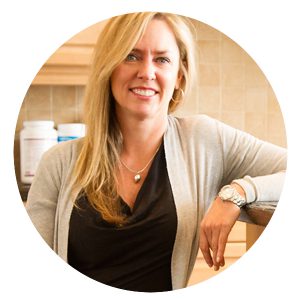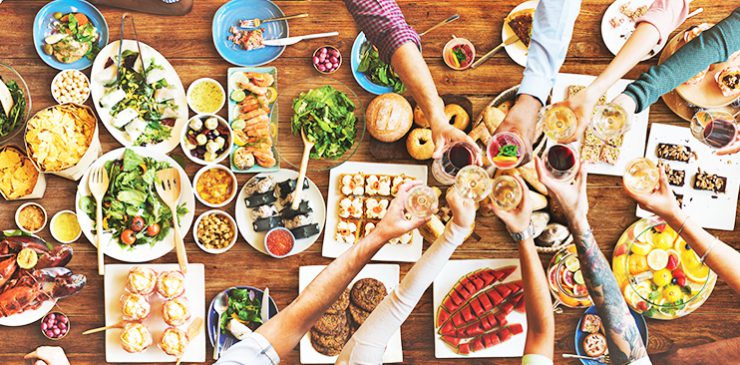During this time, I’ve covered a wide range of topics from digestive dysfunction to unbalanced sex hormones and explained how specific nutrients, foods and supplements can address a multitude of health conditions. Each year I try to share information with you that will provide you with a greater understanding of how important it is to eat well in order to help reduce the risk of developing many common, disability-related, secondary health complications, as well as help demonstrate the powerful relationship between nutrition and optimal health.

In this edition, I’d like to leave you with the greatest lesson I have learned as a nutritionist.
I’ve had the incredible fortune of meeting and working with thousands of people from the disability community across North America. Throughout my experiences, conversations and interactions with clients, consumers and health care providers, it never ceases to amaze me what a profound impact food has on everything we do.
Food has the immense power to bring joy, give comfort, form connections, build relationships, spark conversation and creativity. It sets the rhythm of our days, can be the centre of celebration as well as satiating our hunger. The connection between food and our identity is also deeply ingrained in our cultures and traditions.
Food has the amazing ability to help us heal, physically and emotionally. This is particularly evident in the clients I work with who have newly acquired injuries or health conditions. In these situations, when people have lost control over certain parts of their body or their ability to function independently, food often becomes a centre of focus. During these stressful times, food can be one the few things we can maintain control of while it simultaneously provides us with nourishment and pleasure. What I’ve come to understand very clearly through the process of working with people, regardless of their disability, illness, injury, condition, age, gender, culture or background, is that food is extremely personal. It means vastly different things to different people. These differences are often reflected in the unique and diverse ways in which we shop, prepare, cook and eat our food. These are habits that have developed over our lifetime and most often have emotional ties. It is these last two factors that make long-term dietary changes difficult. This is why providing nutritious and delicious meal plans, recipes and supplement schedules sometimes isn’t enough to help people transition to and maintain healthier diets. As a nutritionist, I’ve learned that the key to making successful dietary changes is to identify why you want to make healthy changes, explore what food means to you and understand how it motivates you.
So, to start this New Year and decade off, here is my strategic recipe to help you make lifelong healthy dietary changes and achieve your nutrition goals:
Set clear goals
Having well defined objectives will help you stay focused and on track.
Explore why these goals are important to you
This is a vital step. The more you understand why you want to make changes and why these changes are important to you, the more likely you are to succeed. This is harder than it sounds. People often tell me that they want to “be healthier”, but don’t have a clear answer why or what it involves. Eating well includes not just introducing new foods but giving up or cutting back on old ones.
I’m frequently asked, “Can I still eat McDonalds, chips and/or candy bars?” Giving up old food habits is difficult because it involves emotion and discomfort. This is where I see people get stuck or give up. This is where you need to dig deep and analyze your relationship to food and why you might be unwilling to give up foods that aren’t good for you.
Choose a good time to start
Dietary changes involve lifestyle changes and this takes time and effort. It’s not realistic to expect that you can transform your diet overnight. Choose a time in your schedule when you can focus your attention on learning new recipes, cooking methods etc.
Enjoy your food
Food is meant to be enjoyed! Eating well does not mean eating boring, bland food. There are delicious, healthy alternatives to every meal and thousands of free recipes online. So be adventurous, try new foods, eat well and live well!
Joanne Smith is a dietitian specializing in nutrition for people with disabilities, and owner of Fruitful Elements, fruitfulelements.com






